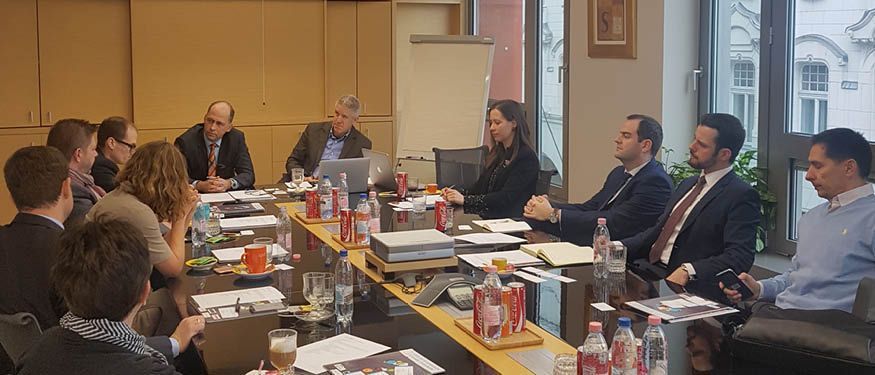The Hungarian financial market finished 2019 in a strong position. Intrigued by what many have described as a “special” year, CEE Legal Matters sat down with several of the nation’s leading Banking/Finance lawyers at Lakatos, Koves & Partners’ offices in Budapest to learn more.
Capital Markets in Hungary
Contributed by Kinstellar.
CEELM Covid-19 Comparative Legal Guide: Contracts in Hungary
Contributed by Nagy es Trocsanyi
Developments in Development: A Hungarian Round Table
The Hungarian real estate and housing market is experiencing golden days. Although the market took a serious hit during the financial crisis in 2008, today enormous sums are again being invested in office buildings, shopping malls, hotels, residential areas, and retail. In order to map the underlying reasons behind the market’s boom, and to better understand how the country is dealing with the high demand for development lands and properties, CEE Legal Matters sat down with six Hungarian lawyers specialized in Real Estate & Construction and a Legal Counsel from Prologis, a Real Estate & Supply Chain Logistics company.
Real Estate Experts Gather for CEELM Round Table in Budapest
On Thursday, April 19, 2018, CEE Legal Matters hosted a round table discussion at the Dentons office in Budapest with leading real estate experts in the market.
Market Makers
The commercial legal markets of Central & Eastern Europe didn’t appear automatically. They didn’t develop in a vacuum. They were formed, shaped, and led, by lawyers – visionary, hard-working, commercially-minded, and client-focused individuals pulling the development of CEE’s legal markets along behind them as they labored relentlessly for their clients, their careers, their futures.
Hungarian Round Table: The In-House Perspective
On January 30, 2017, eight members of the In-House Advisory Panel for the 2017 GC Summit gathered at the offices of Squire Patton Boggs in Budapest for a Round Table conversation on the challenges they face and strategies they employ in dealing with external counsel. The event was moderated by Akos Mester, Partner at Squire Patton Boggs.
Hope in Hungary: The Return of a Cautious Optimism to the Hungarian Legal Market
A select group of prominent Hungarian lawyers gathered at Dentons’ Budapest office on April 6, 2016, for a CEE Legal Matters Round Table conversation about the state of and prospects for the Hungarian economy and the Hungarian legal market. The 90-minute conversation touched on topics including the encouraging signs of recovery, the effects of the “soft nationalization” carried out by the Hungarian government in various sectors, fee trends, and changing expectations of the new generation of lawyers.










